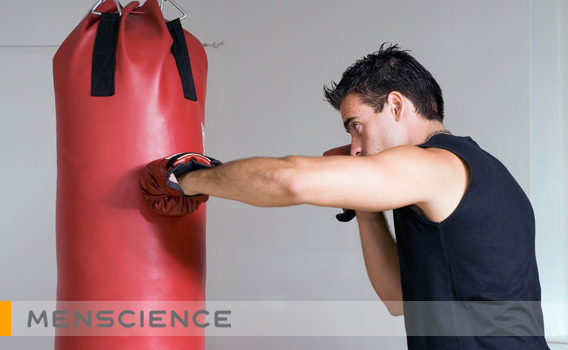Muscle soreness after a workout: We’ve all felt it. Whether we’re just starting a fitness routine or have been following one for a while now, muscle soreness is a common – and annoying – experience. While you don’t want to completely eliminate muscle soreness (we’ll explain why later), there are precautions you can take to minimize the amount of muscle soreness you feel. Before we get into that, though, let’s take a look at why you get sore in the first place.
Muscle Soreness from Workouts 101
The soreness you feel anywhere from a few hours to a day after your workout is known as delayed onset muscle soreness (DOMS). DOMS was originally thought to be related to a buildup of lactic acid in the muscles; lactic acid is a byproduct created by the body when glucose is burned and released as energy during exercise. That theory has since been debunked. Now, research suggests that DOMs is a result of the damage done to muscle fibers by a workout.
You see, lifting weights or performing aerobic exercise for an extended period of time stresses the body. It creates tiny tears in your muscle fibers, which the body eventually repairs. If you’re following the proper diet, this repair process results in larger, stronger muscles; this is the muscle growth process. In other words, being sore is a sign that you’re improving your body.
There can be too much of a good thing when it comes to soreness, however. If your soreness makes it impossible to do everyday tasks, you’ve probably overtrained and should take it easy for a while. Nevertheless, you should feel at least a little sore after a workout to ensure you’re challenging your body and aren’t hitting a fitness plateau.
How to Reduce Muscle Soreness from Exercise
Here are some precautions you can take to keep muscle soreness to a minimum.
1. Take a pre-workout supplement for men and a post-workout supplement for men. Taking the right men’s sports nutrition supplements at the right time can have a dramatic effect on how sore you feel after a workout. Pre-workout supplements for men provide the right mix of nutrients to your muscles so that you achieve peak performance during a workout; post-workout supplements for mencontain an ideal mix of carbs and protein to help encourage muscle repair and growth.
2. Get more rest. One reason you might be sore is that your workouts are too close together. You should strive to keep workouts spaced out at least 24 hours to allow your muscles the proper time to recover. Also, make sure you’re getting enough sleep. Sleep is primetime for muscle recovery, so getting the recommended eight hours is a must – not just for your muscles but for your overall health too.
3. Stretch. If you usually dive right into your workouts, you’re not only setting yourself up for soreness but injury as well. Do some light stretching for about five minutes before your workout and a 10-minute cooldown at the end of your workout. This will help not only improve your range of motion (thereby decreasing risk of injury), but also help your muscles and joints from becoming stiff after a workout.
4. Get more omega-3 fatty acids in your diet. You probably already know that omega-3 is good for your heart, but you may not know that its benefits go beyond just your cardiovascular system. The anti-inflammatory properties of omega-3 fish oil fatty acids may help decrease the amount of joint and muscle pain you feel after a workout. Eat more fish like salmon and tuna or take an omega-3 supplement for men for a quick health boost. To find out more about omega-3s, check out “The Importance of Omega-3 Fish Oil Fatty Acids.”
5. Take a creatine supplement. Creatine supports protein synthesis, allowing your muscles to recover faster from a workout. While creatine may not reduce the severity of muscle soreness, it may help reduce its duration so that you can get back in the gym sooner. A creatine supplement for men is also useful for building strength, giving you the power to push out an extra rep or two at the gym.
6. Don’t do too much too soon. Like we mentioned earlier, extreme soreness is a sign of overtraining. If you’ve gone from lifting 20-pound dumbbells to 50-pound dumbbells in a week, you’re setting yourself up for failure – and pain. Instead, increase weight at 5-pound increments every couple of weeks. The same holds true for aerobic exercise: Don’t go from running 2 miles to 10 miles in a day.









